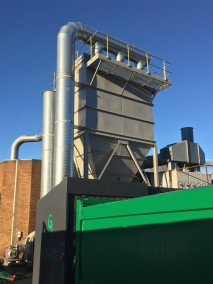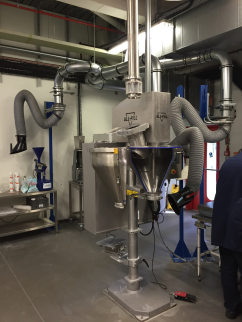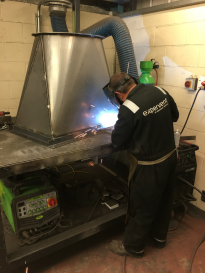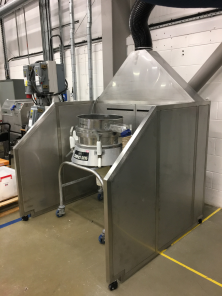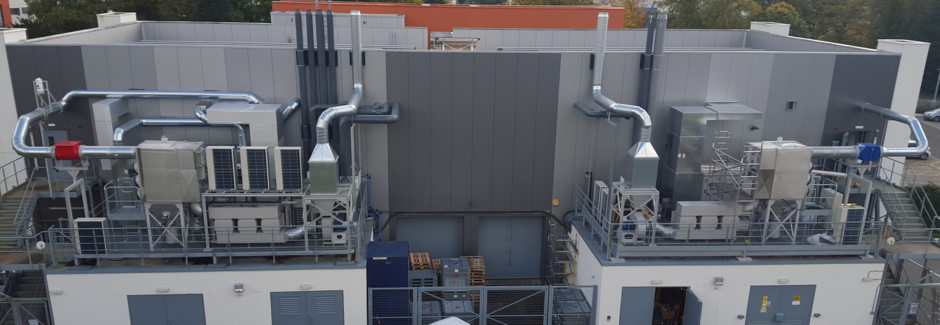
Local Exhaust Ventilation Systems
Overview
Local exhaust ventilation or L.E.V. systems as they are more commonly known, are ventilation systems provided to control, capture and contain airborne contaminants such as dust, fumes and vapors in the workplace.
The reason for L.E.V.?
In today's workplace there are numerous hazards that have the potential to cause harm to unsuspecting employees.
Thousands of people die from work-related lung diseases every year, in many cases due to exposures that took place many years before.
Breathing in certain dusts, gases, fumes and vapors in the workplace can cause serious, long-term lung damage. Diseases like, asbestosis, silicosis, chronic obstructive pulmonary disease (COPD), asthma, emphysema and even lung cancer, all cause severe, often incurable, health problems that can ruin lives.
L.E.V. systems therefore require careful individual consideration of the process and the airborne contaminant to be controlled.
Examples of L.E.V.
Typical examples of Local Exhaust Ventilation Systems include:
- Furnace Extraction Systems
- CNC Machining Extraction Systems
- Weld Fume Extraction Systems
- Steel Grinding Extraction Systems
- Solder Fume Extraction Systems
- Polishing Extract Systems
- Deburring Extract Systems
- Fettling Extract Systems
- Paint Spray Booth Extraction Systems
- Chemical Vapor Extraction Systems
- Oil Mist Extraction Systems
- Wood Waste Dust Extraction Systems
- Flour Dust Extraction Systems
- Vehicle Exhaust Extraction Systems
Legal Requirements -
The Health and Safety at Work act, Control of Substances Hazardous to Health Regulations (C.O.S.H.H.) and the Management of Health and Safety at Work Regulations all place a legal requirement on owners of LEV systems to ensure that they are controlling the operator’s exposure to harmful substances.
A Thorough Examination and Test forms part of this legislative requirement where
HSG 258 “Controlling airborne contaminants at work” provides guidance on the minimum requirements.
The content of the L.E.V. Thorough Examination and Test is individual to each individual system installation and the frequency of the test is dependent on the process and can vary from 1 month to a maximum of 14 months intervals. All records must be kept for a period of 5 years.
The test must be carried out by a compotent person.
How can Expervent help?
With vast experience in L.E.V. system design, manufacture and installation we can provide the best possible all round solution to suit your process and budget.
Our in house Design and Service Engineers currently hold the
British Occupational Hygiene Society's -
P601 - Thorough Examination & Testing of Local Exhaust Ventilation Systems
P602 - Basic Design Principles of Local Exhaust Ventilation (LEV) Systems
These BOHS training modules are based upon Health and Safety Guidance document HSG 258 “Controlling airborne contaminants at work”
What's required to be compliant?
To enable a Thorough Examination and Test to take place the system needs to be documented, this requires the following:-
1. An L.E.V user manual
2. A system logbook
3. Suitable commissioning report or previous thorough examination and test report
If the above items are not available it is not possible to complete a thorough examination and test since the existing system is considered undocumented.
However; if you have an L.E.V. system that is undocumented Expervent can provide unbiased advice and recommendations to bring your system up to the HSG 258 standard and start the documentation process.
Contact Expervent on 0191 489 5400 / enquiries@expervent.com
for your free L.E.V. assessment

